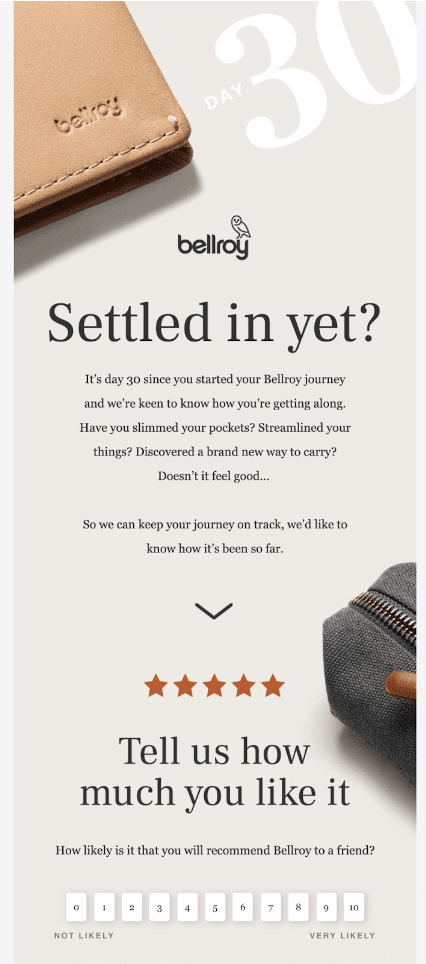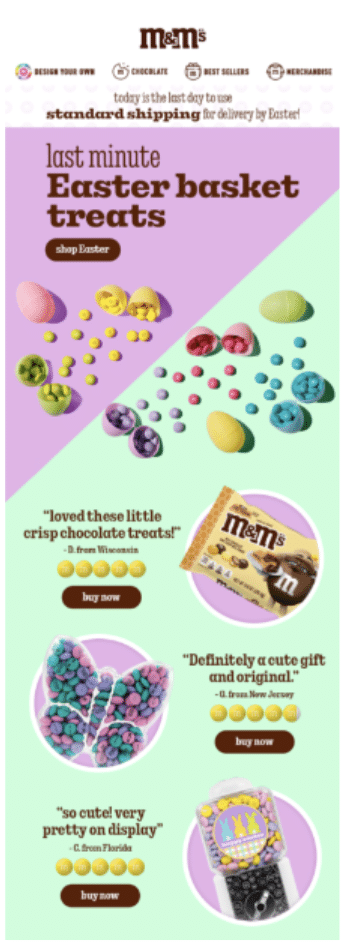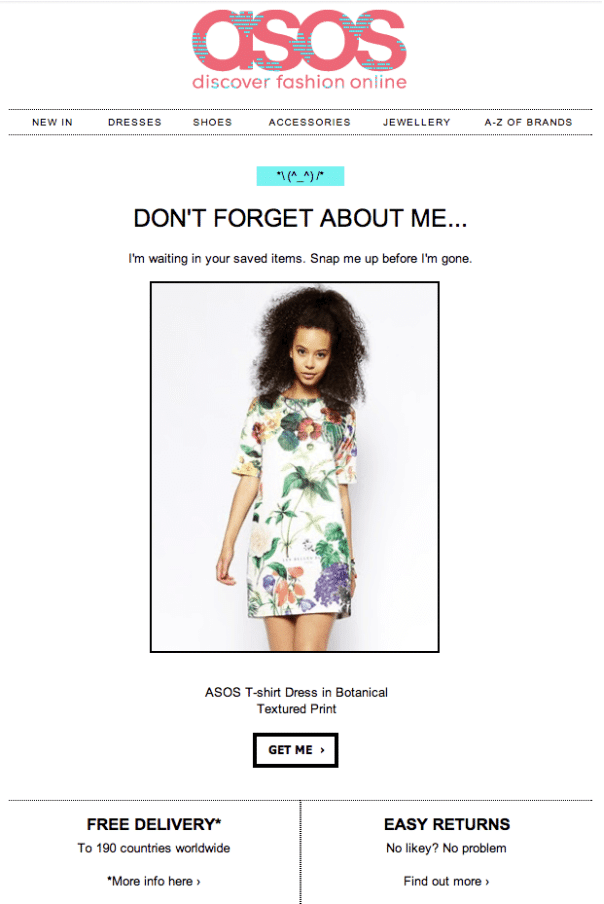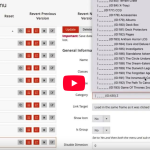
October 31,2023
Ecommerce Email Marketing: What you need to know
Email marketing is an essential tool for any ecommerce stores, allowing businesses to effectively engage with their customers and drive sales. With the right strategies and best practices in place, email marketing can play a key role in boosting conversions and building customer loyalty.
One of the main advantages of email marketing is in its ability to personalise communication with customers. By segmenting your audience based on their preferences, purchase history, or demographics, you can tailor your emails to deliver relevant and dynamic content that resonates with each individual recipient.
Building effective ecommerce emails requires careful consideration of design elements, compelling copywriting, and clear call-to-actions. From welcome emails to abandoned cart reminders, each email should be strategically crafted to guide customers through their purchasing journey.
Contents list:
- What is ecommerce email marketing?
- The key role of email marketing in ecommerce
- Building your email marketing strategy
- Types of email campaigns
- Email design and best practices
What is ecommerce email marketing?
Before understanding why it works so well, it’s important to understand exactly what email marketing is.
Email marketing is a form of marketing that uses emails to promote your business and create awareness amongst potential customers. This is a powerful tool for businesses looking to connect with their customers, build brand loyalty, and drive sales.
Understanding Ecommerce Email Marketing
Ecommerce email marketing, in particular, has emerged as a critical strategy for online retailers. In fact, ‘51% of marketers say email marketing is the most effective marketing channel.
With this in mind, ecommerce email marketing is specifically tailored to the needs and goals of online shoppers. It involves sending targeted and personalised emails to current and potential customers with the primary aim of driving sales, increasing customer retention, and enhancing the overall shopping experience.
The Key Role of Email Marketing in Ecommerce
Email marketing allows ecommerce businesses to establish and nurture relationships with their customers. By sending personalised, and relevant emails, you can keep customers engaged and informed about new products, promotions, and company updates. One study found that ‘email marketing is 40 times more effective at acquiring new buyers than social media. This is why every ecommerce business should consider utilising email marketing in their strategies.
One of the greatest strengths of email marketing is the ability to segment your audience and send personalised content. By analysing customer data and behaviour, ecommerce businesses can tailor their email campaigns to individual preferences, increasing the likelihood of conversions.
Email marketing is also an effective way to showcase products, share promotions, and highlight special offers. By crafting compelling email content, businesses can entice customers to make purchases, especially during key shopping seasons or sales events.
So how does email marketing impact a business?
Increased sales
Ecommerce businesses can use email marketing to promote products, offer discounts, and announce special sales events. These targeted promotions encourage customers to make purchases, leading to increased revenue. Generally speaking, email marketing campaigns have a high return of investment, and don’t cost a lot of money to start up.
Furthermore, email marketing offers a high return on investment (ROI) and is one of the most cost-effective digital marketing strategies, as it doesn’t require a large advertising budget.
Personalisation & customer relationships
Regular email communication keeps customers engaged and informed, strengthening their connection with your brand. It’s a simple way of showing your customers you’re thinking of them.
Businesses can use email marketing to personalise recommendations and their emails, which can help to generate a ‘50%’ higher open rate than normal. To build customer relationships you can create exclusive offers to customers, all of which can help to foster loyalty and increase your chance of making a sale.
Customer feedback & improvement
Getting customer feedback holds many benefits for ecommerce businesses. Not only is it a great way to show that you value your customers’ opinions but, it’s also very helpful for new potential customers. Every business needs reviews, and email marketing is a great method to get these.
Email marketing can be used to collect customer feedback which can help businesses gain insights into customer preferences and needs, thereby helping you to enhance your products and services. All of this will help you to enhance your customers experience, which can help to increase your ecommerce sales.
Building Your Email Marketing Strategy
One of the most important elements of building a successful email marketing strategy is understanding your target audience. This involves not only identifying who your customers are but also understanding their needs, preferences, and pain points.
Why do you need to understand your audience?
When you understand your audience, you can create content and offers that are more relevant to them. Relevance is key to capturing their attention and driving engagement. As mentioned previously, it also helps towards personalising your email campaigns, and personalised content has a significantly higher chance of resonating with recipients and converting to purchases.
Creating buyer personas
Buyer personas are detailed representations of your ideal customers. It is an essential tool for segmenting your email lists and tailoring your marketing efforts.
Here’s how to create and use customer personas:
Research: Start by collecting data about your existing customers. This might include demographic information, purchase history, online behaviour, and feedback. Use analytics tools and customer surveys to gather this information.
Identify Patterns: Look for common characteristics, interests, and behaviours among your customers. For example, are there distinct groups within your customer base that seem to purchase a particular product?
Create your Personas: Develop specific personas that represent these customer groups. Give each persona a name, age, job title, and personal background. The goal is to make them feel like real people, this will help you to personalise your email marketing efforts and offer product suggestions from your store that resonate with the individual customer.
Refine your Lists: Once you have your personas in place, you can then segment your email lists accordingly. Here you can tailor your email campaigns to address the unique needs and interests of each customer. This might involve writing different content, or suggesting different product recommendations for each group.
Analyse and Update: One thing to remember is that you should always be updating your personas. As you generate feedback and results from your email marketing campaigns you can analyse and adapt accordingly this will ensure that you are utilising the effectiveness of your campaign. So remember to monitor the performance of your segmented email campaigns.
Types of Email campaigns.
Now we know the efficiency of email marketing, let’s take a look at the different types you should consider utilising in your email marketing campaign.
The main thing to remember is that all of your ecommerce emails should serve a purpose to generate more business, whether that is through building trust or creating a sense of urgency.
We have put together a list of some of our favourite emails that fit into four different categories: education, engaging, promotional, and transactional.
Education Emails
As mentioned above, all of your emails should serve a purpose, and what better purpose is there in ecommerce than to teach potential clients more about your product, services or business?
These are great for keeping your audience informed about any additional information they need on your products, services or business, and they encourage interaction.
As demonstrated in the email example below, by educating their audience on how they can hang their art Framebridge are strengthening those relationships with their clients, and ensuring that any pain points or issues their audience might have they appear as the experts by offering solutions.

(Source)
This email is a great example of how educating your audience is a quick and easy way to nurture and grow client relationships. The email is easy and straightforward to follow, and gets the point across of ‘solving a problem’ very easily.
And, if the email on base value wasn’t enough, their ‘educate me’ button encourages customers to continue their journey, which could potentially lead to more conversions and higher engagement rates.
Engagement emails

(source)
Keeping your audience engaged is crucial. And what better way to engage your audience and benefit from it than asking for a review?
The above email is a brilliant example of this, not only does it very easily ask and encourage a review, one of the great things about it is how it uses elements of personalisation. The ‘Day 30’ in the design signifies that this email is significant to the individual and acts as a way or praise.
When writing an email for engagement, remember that it should be as simple as possible for the client to engage with it. This means using clear CTAs and visuals to make (in this instance) leaving their review as stress free and non time consuming as possible.
Promotional Emails
Promotional emails are used to promote your business, services or product. Some examples of promotional emails you might see are limited time offers, new arrivals, product launches and more.
There’s a few ways to make these emails particularly effective…

(source)
The email above is a great example of what makes a great promotional email. M&M utilises customer testimonials to promote their products therefore building trust with potential customers. They also use Easter to build a theme around their products and cement a feeling of urgency on ‘once easter is over so is this offer’.
This email successfully promotes their products and urges customers to take action.
Transactional Emails
An abandoned cart email is a triggered email that will help you to draw a customer back to your store to make their purchase on a product they ‘abandoned’.
A lot of triggered emails are a great way to draw customers back to your business. Generally, they are sent out as a response to a specific action, in this instance that action would be abandoning your cart.
Want to learn more on triggered emails? Click here and have a read of our other article.
See below for an example of an abandoned cart email.

(source)
One reason we like the above example is its simplicity. This email gets straight to the point and makes it as easy as possible for people to navigate it.
Highlighting the product by showing an image of it is a great way of adding an element of personalisation to the email. And if that’s not enough to convince you their two USPs at the bottom of the email work to change any uncertainty to certainty.
Specifically for an ecommerce website, highlighting how easy it is to return the item will help people feel more inclined to shop with you instead of another store.
Email design best practices
Did you know that over 8.3 billion emails are sent per day? It’s safe to say that a lot of these will become spam or won’t get read. So for your marketing campaign to really resonate with your audience and standout you need to ensure that your email content and design are up to standard.
What are the best practices for creating compelling emails?
Personalisation
We’ve mentioned a few times the significance of personalised emails. This is because they can play a very specific role in email marketing. The main thing to remember with this is relevance.
No one likes to feel like they’re being spammed, and personalisation is a great way to avoid this feeling. Instead, it can make your client feel valued as your email is ‘catering’ to them.
One great example of personalisation is ‘Spotify wrapped’. This is a simple campaign that happens every year for Spotify users. It simply ‘wraps up’ the year, telling you how long you listened to music, who your favourite artists were and more.
With this a simple email is sent out each year encouraging people to go into the app and listen. However, it’s the personalisation of this campaign that really resonates with a lot of users, and is a great example of personalisation in emails.
Segmented emails
This is a good method to use in your ecommerce emails, of which the content your customers receive will depend on the individual. This might be the difference between someone receiving offers on mens shoes vs womens shoes, making the content more exclusive to the individual.
This is often seen with stores like Amazon, whereby customers will receive emails with product suggestions based on their recent browsing history.
Eye Catching subject lines
Subject lines are the gateway to capturing your audience’s attention in an email campaign.
To draw someone in effectively, make sure that they are concise and clear. Keep subject lines under 50 characters to ensure they display fully on various devices. Next, create a sense of urgency or curiosity. You should use action words, numbers, or time-sensitive language to pique interest, for example, this might be a limited time offer or a discount.
Lastly, be honest and relevant. The subject line should always accurately represent the email’s content to maintain trust and engagement. This will also help you avoid ending up in someone’s spam folder.
Branding
Branding, is a cornerstone of effective email marketing for several compelling reasons. First, it establishes trust and credibility. Consistent branding, with recognisable logos, colours, and design from your ecommerce website, will help to reassure recipients that the email is from a legitimate source.
Additionally, branding enhances engagement and loyalty. When recipients associate your brand with quality and relevance, they are more likely to open, read, and act on your emails. It also fosters a sense of connection and familiarity, which are vital for building long-term customer relationships.
Build trust
In the realm of email marketing, the integration of social proof. Customer feedback acts as a powerful strategy that can elevate the effectiveness of your campaigns and build trust with your audience.
Social proof, in the form of ratings, reviews, or user-generated content, not only validates your offerings but ultimately encourages recipients to take action. By showcasing positive feedback and real-life experiences from satisfied customers, you build trust and credibility, assuring recipients of your product/services value.
Final thoughts
Email marketing plays a crucial role in the success of any ecommerce store. One key role of email marketing is its ability to personalise communication with customers. By segmenting your audience and tailoring your emails based on their preferences and behaviour, you can deliver highly relevant content that resonates with recipients.
Email marketing remains an essential tool for stores seeking to engage customers effectively while driving sales growth. By embracing the aforementioned techniques and implementing effective strategies, businesses can leverage email marketing to drive engagement, increase conversions, and boost revenue.




